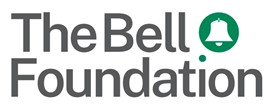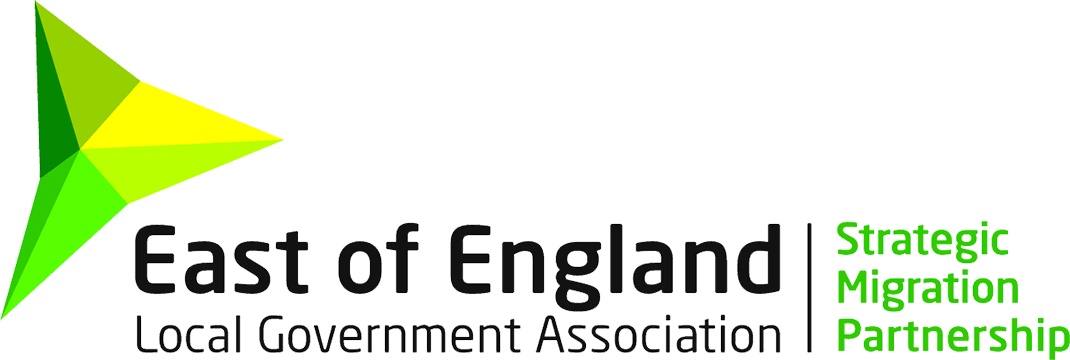Employment, Language and Wellbeing Support Key To Refugee Integration
Evidence from the Wellbeing and Work for Refugee Integration (WW4RI) project shows the importance of employment, language and wellbeing support to tackling integration barriers facing new arrivals to the UK.
The WW4RI project Well being and Work for Refugee Integration Project - EELGA SMP, led by the East of England Local Government Association’s Strategic Migration Partnership (EELGA SMP), provides tailored support to participants across three strands: Employment, ESOL (English for Speakers of Other Languages) and Skills as well as Wellbeing.
 By supporting ‘facilitators’ of integration, like language skills and cultural understanding, the project’s final report, which was funded by The Bell Foundation, shows that participants are empowered to build ‘social connections’ within the community and with UK institutions. This contributes to the enhanced health and wellbeing of participants, and an increased ability to move into employment – or self-employment – and take greater control over their lives. These are key indicators of integration.
By supporting ‘facilitators’ of integration, like language skills and cultural understanding, the project’s final report, which was funded by The Bell Foundation, shows that participants are empowered to build ‘social connections’ within the community and with UK institutions. This contributes to the enhanced health and wellbeing of participants, and an increased ability to move into employment – or self-employment – and take greater control over their lives. These are key indicators of integration.
One participant commented:
“[Without the project] I wouldn’t have applied for a job, I wouldn’t be volunteering, I wouldn’t have been able do a placement or feel confident, or fill out forms, anything. I wouldn’t have tried. I would have given up; it would be too difficult to do on my own. [The project] made me confident.”
Speaking about the project, Louise Gooch, the project manager from EELGA's SMP, said: “It has been a privilege to work with the dedicated employment advisers, ESOL providers and well-being services. They have shown how, with the right kind of support, refugees can secure work that is commensurate with their skills and experience. Employers have told us how much they value their refugee employees and we hope that other parts of the UK will be inspired to create similar projects at a time when the country is welcoming many refugees.”
Since April 2020, 993 refugees have received support across the East of England. As part of the project, participants work with a dedicated employment advisor to support their path into work – and in some 80 cases, a business adviser who can help them establish a business. Of the participants surveyed, 88% reported an improvement in their employment skills. Participants are also able to attend a range of language and wider skills courses. Almost three-quarters of participants surveyed reported that their language proficiency had improved because of the support they received.
One participant stated that:
“Speaking English has really helped. I can now communicate fully with others and do things on my own. I can go shopping. I am more confident and do whatever I need to do.”
Through the project’s third strand, participants are able to access targeted wellbeing support, including access to a therapist. In all the wellbeing measures included in the CORE (Clinical Outcomes in Routine Evaluation) data, at least half of participants reported an improvement. This includes in areas such as anxiety, unwanted memories and ability to talk to people. Some participants also reported an improvement in feelings of being safe; they have also been helped with the trauma they experienced prior to arriving in the UK, including lasting effects like nightmares and fear.
Diana Sutton, Director of The Bell Foundation, said: “This report provides a timely insight into the experiences and needs of refugees in the UK. For people arriving in an unfamiliar country, often in exceptionally difficult circumstances, the tailored support offered by WW4RI is life-changing. By providing support in areas like English language skills – skills that are so crucial in our day-to-day lives – refugees can be empowered to not only achieve their educational and employment aspirations, but also build those vital social connections. We hope that the findings and recommendations from this evaluation help to shape the effective support of refugees, both across the East of England and the UK as a whole.”
The findings from the WW4RI project final evaluation will now be used to inform the next phase of the project, which involves preparing a framework for best-practice integration and embedding the learning from WW4RI in the organisations involved in the current and successor projects.
The final evaluation report and logic model can be downloaded here:
WW4RI Final Evaluation Report 230822
The interim report and logic model provide more detailed information on the results of the project and can be found here:
WW4RI Interim Evaluation Report
Media enquiries regarding this announcement should be directed to Louise Gooch, [email protected], 07834 129 582 for EELGA SMP and Emma Lloyd, Communications Officer, [email protected] or 07462 615 906 for the Bell Foundation.
